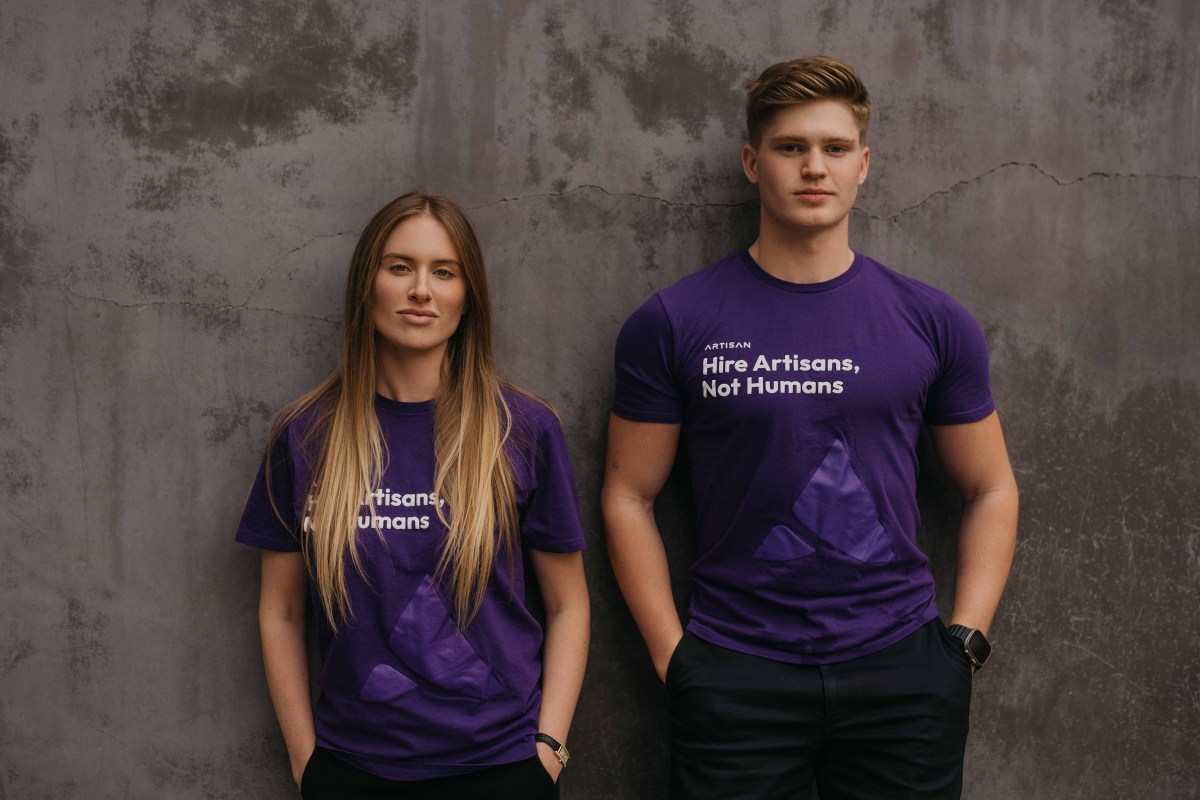Artisan, AI Agent Startup Advocating for Automation, Secures $25M Funding – Yet Continues to Hire Human Employees

Jaspar Carmichael-Jack and the Success of Artisan
Introduction to Artisan
At just 23, Jaspar Carmichael-Jack has made significant strides as the founder and CEO of Artisan, an up-and-coming startup focused on AI sales agents. Recently, Artisan secured $25 million in Series A funding, led by Glade Brook Capital, with support from numerous investors, including Y Combinator and HubSpot Ventures. This influx of capital comes on the heels of a successful $12 million raise just last September, marking Artisan as a standout from the winter 2024 Y Combinator class.
The Journey of Artisan
Since its inception, the journey for Carmichael-Jack and his co-founder, Sam Stallings, a former IBM product manager, has been a whirlwind experience filled with challenges typical of early-stage startups. Artisan operates in the burgeoning AI sales development representative (AI SDR) market, known for its unique and provocative marketing campaign entitled "Stop Hiring Humans." This campaign has sparked conversations online, attracting both attention and criticism.
In an attempt to playfully address the backlash, Carmichael-Jack staged an April Fool’s joke, announcing his “resignation” in favor of an “AI CEO.” However, he reaffirmed his commitment to leading Artisan, asserting that while AI is transforming industries, it is not a direct substitute for human labor.
Hiring and Workforce Development
Despite the focus on AI, Artisan continues to employ a human workforce, with 35 staff members and plans to expand by hiring 22 more, particularly in sales. Recently, the company appointed a new Chief Technology Officer, Ming Li, who brings experience from major firms like Google and TikTok.
Addressing Customer Churn
Artisan has faced its share of challenges, especially regarding customer retention. Carmichael-Jack pointed out that, similar to other companies in the AI SDR sector, they have experienced some customers discontinuing their service. Early on, many products in this field gained a reputation for delivering subpar results, prompting dissatisfaction among clients.
One critical point raised is the performance of earlier AI SDR iterations, which had low response rates and high churn. Carmichael-Jack admitted to his dismay upon reviewing early email pitches from Artisan’s products, which struggled with “hallucinations” — incorrect or nonsensical outputs generated by AI. Fortunately, Artisan has made strides to mitigate this issue. Their flagship product, Ava, now boasts a much-improved accuracy rate, claiming to only produce errors in about one in 10,000 emails. The collaboration with model provider Anthropic has allowed Artisan to refine their prompts, tightening input to enhance output quality.
Growth and Future Plans
As a result of these improvements, Artisan now counts over 250 companies as clients and has achieved $5 million in annual recurring revenue. The firm is not resting on its laurels; they are actively developing two new AI products — Aaron, meant for handling inbound messages, and Aria, a meeting management assistant, both scheduled for launch by the end of 2025.
Carmichael-Jack has also realized that not all businesses can benefit from AI SDR solutions. The firm has opted not to work with certain industries, including offshore development agencies, as they found that some clients struggled significantly with agentic outbound sales.
Client Selection and Targeting
Carmichael-Jack explained that finding the right fit is essential for effective AI SDR usage. Artisan has learned that different companies yield varying responses, and a one-size-fits-all approach does not work. The goal is to identify clients that can achieve an optimal response rate of around 1%.
Additionally, Artisan is leveraging techniques similar to those employed in the sales automation sector for years, which involves analyzing social media activity and current events to better target potential customers. They possess a proprietary database of brick-and-mortar businesses, providing them a unique edge in understanding their target audience.
Flexible Pricing Strategies
To further enhance customer satisfaction and counteract the industry’s sometimes shaky reputation, Artisan is experimenting with a new flexible pricing model through a partnership with Paid.ai. This platform enables clients to only pay for responses rather than committing to lengthy contracts, aligning costs with the value they receive.
Carmichael-Jack’s perspective emphasizes that their aim should be to continuously provide value. If their clients do not find worth in Artisan’s services, they believe it should reflect on the pricing.
Through strategic improvements and a focus on customer alignment, Artisan aims to redefine the potential of AI in sales and continue its trajectory of growth in a challenging market.





